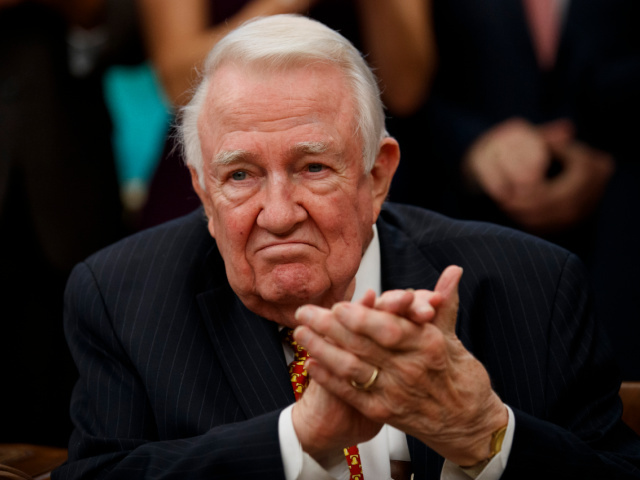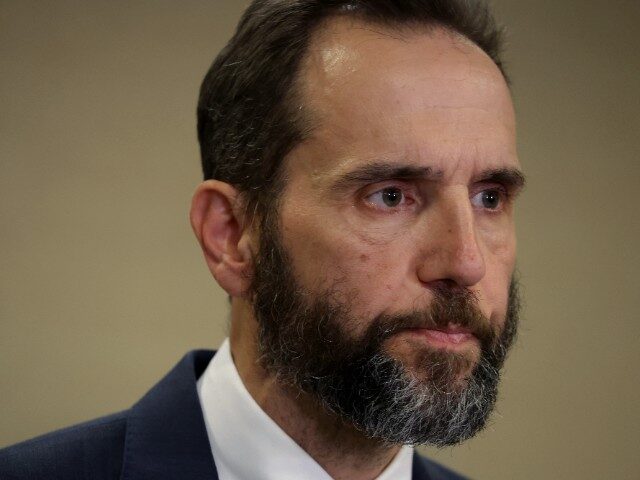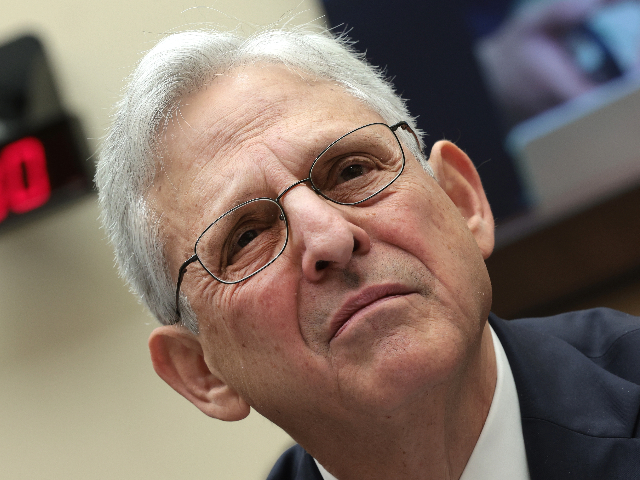WASHINGTON, DC – Jack Smith’s appointment as special counsel is unconstitutional and so the Supreme Court must reject his petition against Donald Trump, lawyers representing former Attorney General Ed Meese and two top constitutional scholars in the country argued in a brief filed on Wednesday.
Their amicus (or “friend of the court”) brief argues that Smith lacks authority to represent the United States by asking the Supreme Court to weigh in (called a petition for certiorari) because the office he holds has not been created by Congress and his appointment violates the “Appointments Clause” of the Constitution.
The filing essentially claims U.S. Attorney General Merrick Garland improperly appointed Smith to an office that does not exist with authority Garland does not possess.
Meese, Steven Calabresi, the co-chairman of the Federalist Society, and Gary Lawson, a prominent constitutional law professor, first argue that only Congress can create federal offices such as Smith currently holds, which Congress has not done.

Former Attorney General Edwin Meese applauds as President Donald Trump speaks during a ceremony to present the Presidential Medal of Freedom to Meese, in the Oval Office of the White House, Tuesday, Oct. 8, 2019, in Washington. (AP Photo/Alex Brandon
While the Constitution creates the offices of President and Vice President, Congress has the sole authority to create additional offices, because the Constitution says those offices must be “established by Law.” Congress previously passed a law to authorize a similar position called an “independent counsel,” but that statute expired in 1999.
Garland cannot hire a mere employee to perform tasks that Congress has not authorized, the attorneys write. Only an “officer” can hold such a significant level of authority. In creating the Department of Justice, Congress gave it certain powers by law, yet it authorized no office with all the powers of a U.S. Attorney that Garland has given Smith.
The amicus brief further argues, “Even if one somehow thinks that existing statutes authorize appointment of stand-alone special counsels with the full power of a U.S. Attorney, Smith was not properly appointed to such an ‘office.’” They assert even if special counsels were authorized by Congress, anyone in possession of such powers would require presidential nomination and Senate confirmation.
Moreover, the brief argued that Smith has so much power, just like a U.S. Attorney, he is a “principal officer” under the Constitution’s Appointments Clause, which means he must first be nominated by the president and then confirmed by a majority of the U.S. Senate.
“Improperly appointed, he has no more authority to represent the United States in this Court than Bryce Harper, Taylor Swift, or Jeff Bezos,” they write.
Although these briefs focus on saying the Supreme Court should refuse Smith’s petition for the high court to take the case, its argument would mean that lower federal courts should dismiss all of Smith’s prosecutions, including all of his pending charges against Trump.
Meese served as Attorney General for President Ronald Reagan during a time when independent counsels were authorized by Congress and served a significant role.
The case is United States v. Trump, No. 23-624 in the Supreme Court of the United States.
Bradley Jaye is a Capitol Hill Correspondent for Breitbart News. Follow him on X/Twitter at @BradleyAJaye.


COMMENTS
Please let us know if you're having issues with commenting.